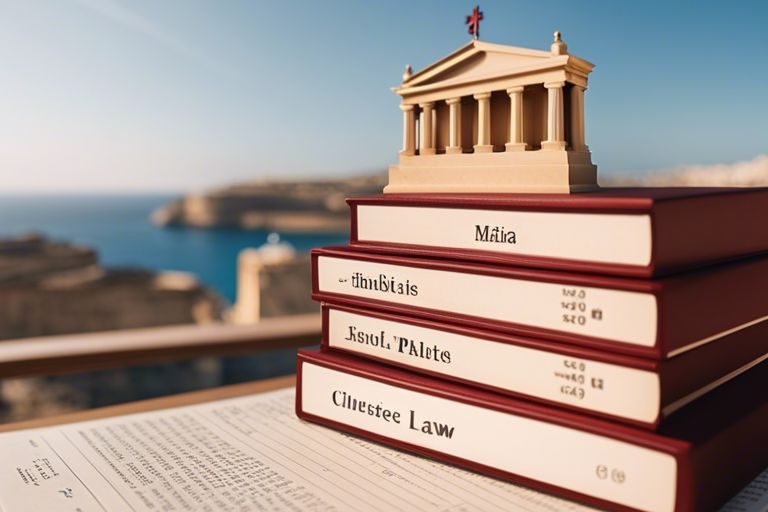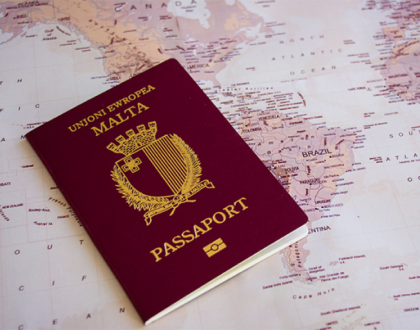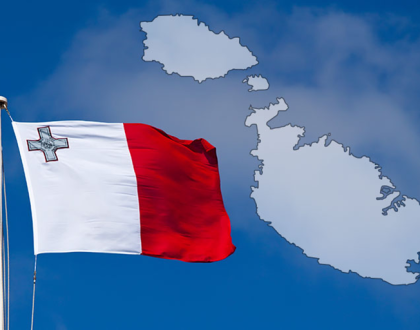Malta’s Laws Overview

Just like any other country, #Malta has its own set of #laws that govern various aspects of daily life. Understanding these laws is crucial for residents and visitors alike to avoid any legal pitfalls. In this blog post, we will provide an easy-to-understand overview of some key laws in Malta, shedding light on important regulations that everyone should be aware of.
The Basics of Maltese Legislation
Historical Background
Historically, Malta has been influenced by various civilizations, including the Phoenicians, Romans, Arabs, and Knights of St. John. Each of these ruling entities left a mark on the island's legal system, contributing to the rich tapestry of Maltese legislation we see today.
Sources of Maltese Law
One of the primary sources of Maltese law is the Constitution of Malta, which serves as the supreme law of the land. Additionally, legislation enacted by the Maltese Parliament, known as Acts of Parliament, plays a significant role in shaping the legal framework of the country.
Basics: The legal system in Malta is a combination of civil law and common law traditions, with a strong emphasis on statutory law. The Maltese legal system is known for its clear and well-defined laws, which provide a sense of predictability and stability for both citizens and businesses operating in the country.
Understanding the Maltese Legal System
The Judiciary and Court Structure
One of the key aspects of the Maltese legal system is its independent judiciary. The judiciary in Malta is responsible for upholding the rule of law and ensuring justice is served. The court structure in Malta is well-defined, with different courts handling various types of cases. The highest court in Malta is the Constitutional Court, which deals with matters related to the constitution and human rights.
The Role of the Attorney General and Legal Professionals
Civil society in Malta relies on the Attorney General to act as the government's legal advisor and prosecutor in criminal cases. Legal professionals in Malta play a crucial role in ensuring that the legal system operates effectively and efficiently. They provide legal advice, represent clients in court, and work to uphold the principles of justice and fairness.
Criminal cases in Malta are prosecuted by the Office of the Attorney General, whose role is imperative in ensuring that individuals who commit crimes are held accountable for their actions. The Attorney General also plays a key role in safeguarding the rule of law in the country.
Law Enforcement Agencies
In Malta, law enforcement is carried out by the Malta Police Force, which is responsible for maintaining public order and safety. The force is well-trained and equipped to handle various types of crimes, from petty theft to more serious offenses. Courts in Malta work closely with law enforcement agencies to ensure that individuals who break the law are brought to justice swiftly and fairly.
Court proceedings in Malta are conducted in a fair and transparent manner, allowing both the prosecution and defense to present their cases effectively. Judges in Malta are highly experienced and knowledgeable, ensuring that the rule of law is upheld at all times.
Civil Law in Malta
For a clear understanding of the legal system in Malta, an overview of Civil Law is necessary. Civil Law in Malta is based on the Napoleonic Code, which emphasizes written laws and the codification of principles.
Contract Law
Any agreement between two or more parties in Malta is governed by Contract Law. This area of Civil Law deals with the formation, interpretation, and enforcement of contracts. It is crucial to carefully read and understand the terms of any contract before signing as once it is signed, it becomes legally binding.
Property Law
Any legal issues related to property ownership and transactions fall under Property Law in Malta. This includes the buying, selling, leasing, and renting of real estate properties.
Civil Law in Malta provides a framework for resolving disputes related to property ownership, boundaries, and rights. It is important to seek legal advice when dealing with property matters to ensure compliance with the law and avoid any potential legal pitfalls.
Criminal Law in Malta
Now let's explore into the intricacies of Criminal Law in Malta. This legal framework sets out the offenses that are considered crimes in the country, as well as the punishments for committing these crimes. Understanding Criminal Law is imperative for residents and visitors to ensure they comply with the regulations and avoid legal repercussions.
Overview of Criminal Offenses
To provide an overview, Criminal Offenses in Malta cover a wide range of actions that are deemed unlawful by the state. These offenses can include but are not limited to theft, assault, fraud, drug-related crimes, and more. It is crucial for individuals to be aware of what constitutes a criminal offense to prevent inadvertently breaking the law.
Punishments and Sentencing
One aspect of Criminal Law that individuals must be familiar with is the Punishments and Sentencing guidelines in Malta. The severity of the punishment often depends on the nature of the offense committed, with imprisonment, fines, community service, or probation being common forms of punishment. It is imperative to note that the Maltese legal system aims to uphold justice and deter individuals from engaging in criminal activities.
With effective enforcement and strict adherence to the law, Malta works to ensure the safety and well-being of its citizens. By understanding the laws and consequences related to Criminal Offenses, individuals can contribute to a safer and more harmonious society in Malta.
Business and Commercial Laws
Company Formation and Governance
Commercial laws in Malta govern the formation and governance of companies in the country. Unlike some jurisdictions, Malta offers a straightforward process for setting up a company, making it an attractive destination for entrepreneurs looking to establish their businesses. The Companies Act provides the regulatory framework for company formation and management, outlining the requirements for incorporation, directors' responsibilities, and shareholder rights.
To start a company in Malta, entrepreneurs must follow the prescribed steps, including registering the business with the Malta Business Registry, obtaining a tax identification number, and complying with all legal and regulatory obligations. Non-compliance with company laws can result in penalties and even the dissolution of the business, making it crucial for business owners to stay informed and ensure compliance with all legal requirements.
Taxation and Financial Regulation
Financial laws in Malta cover taxation and financial regulations that businesses must adhere to. The country's tax system is known for its favorable treatment of businesses, with a competitive corporate tax rate and various incentives for companies. The financial sector in Malta is regulated by the Malta Financial Services Authority, which oversees the implementation of financial regulations and ensures compliance with European Union directives.
Financial regulations in Malta are designed to promote transparency, stability, and integrity in the financial sector, safeguarding investors and maintaining the country's reputation as a reputable financial center. Businesses operating in Malta must ensure compliance with tax laws and financial regulations to avoid penalties, audits, or legal action.
Family Law and Social Legislation
Not only does Malta have a rich history and stunning landscapes, but it also boasts a comprehensive legal system that covers various aspects of family law and social legislation. These laws are designed to regulate and protect the rights, responsibilities, and relationships within families and the wider society.
Marriage, Divorce, and Children's Rights
Marriage in Malta is considered a sacred institution and is governed by the Marriage Act. This Act outlines the legal requirements for marriage, including age restrictions, consent, and the registration of marriages. Divorce, on the other hand, has only been legal since 2011, making Malta one of the last countries in Europe to allow it. In terms of children's rights, Malta has various laws in place to protect the interests and well-being of minors, including provisions for custody, maintenance, and inheritance.
Social Welfare and Employment Rights
Family is at the core of Maltese society, and the government places great emphasis on providing social welfare and employment rights to its citizens. Malta has a robust social welfare system that includes benefits such as healthcare, education, housing assistance, and financial aid for those in need. Employment rights are also well-protected in Malta, with laws governing working conditions, wage regulations, and anti-discrimination measures in the workplace.
It is crucial for individuals to be aware of their rights and responsibilities within the family unit, as well as the support systems available to them through social welfare and employment laws in Malta. By understanding and adhering to these laws, individuals can ensure the well-being and stability of their families and contribute to the overall social fabric of Malta.
Special Topics in Maltese Law
Many aspects of Maltese law cover a wide range of special topics that are crucial for the well-being of society and the environment. One of the significant areas of focus is environmental regulations, which play a vital role in preserving Malta's natural resources and promoting sustainable development.
Environmental Regulations
On the island of Malta, environmental regulations are enforced to protect its unique ecosystems, diverse wildlife, and overall environmental health. These regulations cover various aspects such as air and water quality, waste management, conservation of natural habitats, and protection of endangered species. Non-compliance with these regulations can result in hefty fines, legal action, and irreparable damage to the environment.
Technological Advancements and the Law
Topics concerning technological advancements and the law have become increasingly relevant in Maltese society. With the rapid pace of technological innovation, laws must be continuously updated to address issues such as data privacy, cybersecurity, intellectual property rights, and the ethical use of emerging technologies. It is important for lawmakers to stay informed and proactive in adapting legislation to keep up with the ever-evolving technological landscape.
Regulations governing technological advancements aim to strike a balance between fostering innovation and protecting the rights and interests of individuals and society as a whole.
Navigating Legal Disputes and Resources
Dispute Resolution Mechanisms
Despite best efforts, legal disputes can arise in any setting. Navigating through these disagreements require a clear understanding of Malta's dispute resolution mechanisms. In Malta, disputes can be resolved through various means such as negotiation, mediation, arbitration, or litigation.
Mediation is a popular mechanism where a neutral third party helps the parties reach a mutually acceptable solution. Arbitration involves an independent arbitrator deciding the outcome based on evidence presented by each party. Litigation is the formal process of taking a dispute to court, where a judge will make the final decision.
Legal Resources and Support
Support when dealing with legal matters is crucial. Malta offers a range of resources and support systems to guide individuals through legal processes. It is necessary to have access to legal aid services for those who cannot afford legal representation. Additionally, lawyers and legal advisors can provide expert advice on navigating the complexities of Maltese legal procedures.
With proper support and resources, individuals can confidently address legal challenges and protect their rights in Malta's legal system. Whether it's understanding legal documents, filing a claim, or seeking legal representation, having the right resources can make a significant difference in resolving legal disputes effectively.
Final Words
Hence, as we conclude this overview of Malta's laws, it is evident that the legal framework in Malta is designed to be accessible and easy to understand for both residents and visitors. From the robust protection of individual rights to the straightforward procedures for setting up a business, Malta's laws prioritize clarity and fairness. By familiarizing yourself with the key aspects of Maltese law, you can navigate the legal landscape with confidence and ensure compliance with the regulations.
FAQs
What are the primary sources of law in Malta?
The Constitution of Malta and Acts of Parliament are key sources shaping Malta's legal framework.
How is the Maltese legal system structured?
Malta operates under a combination of civil law and common law traditions, ensuring clear and predictable legal guidelines.
Who oversees the enforcement of criminal law in Malta?
Criminal cases in Malta are prosecuted by the Office of the Attorney General to uphold justice and maintain law and order.
What are the key aspects of property law in Malta?
Property law governs issues related to ownership, transactions, and disputes involving real estate in Malta.
How does Malta regulate business and commercial activities?
Commercial laws in Malta govern company formation, taxation, and financial regulations to support a conducive business environment.
Recommended Posts

Sportingtech Boosts Security with Continent 8
October 4, 2024

Legal Win for Malta’s Citizenship Program
October 4, 2024

Why iGaming Brands Choose Malta
October 4, 2024




